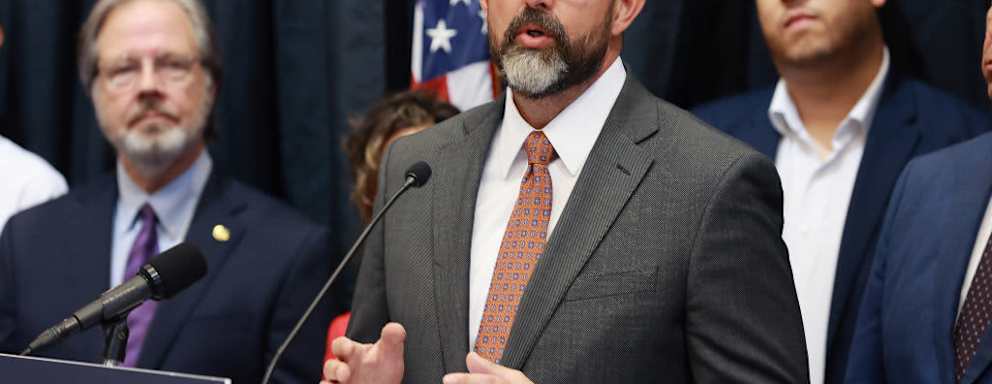What Actually Happened to AP Psychology in Florida?
 Credit: Image Credit: Orlando Sentinel / Contributor / Tribune News Service / Getty Images
Credit: Image Credit: Orlando Sentinel / Contributor / Tribune News Service / Getty Images- The College Board stated a week before the start of the school year that Florida educators wouldn’t be able to teach the full AP course without breaking Florida’s “Don’t Say Gay” law.
- The state then clarified that educators can teach AP Psychology in full — a day after reportedly telling school districts that the class topics would violate state law.
- Confusion over the conflicting official statements pushed many school districts to remove AP Psychology from their course offerings.
- Many schools are providing alternative course options through the Cambridge AICE program, the International Baccalaureate program, or dual enrollment.
The College Board released a statement Aug. 3 saying Florida educators could not teach AP Psychology in its entirety without violating the so-called “Don’t Say Gay” law that largely prohibits discussions about gender identity and sexual orientation in Florida schools.
However, the Florida Department of Education (FDOE) made a last-minute announcement the day before the start of the academic year, stating schools can teach AP Psychology in full, despite covering those topics.
The FDOE’s statement may have come too late though. Florida’s school year started Aug. 10, and many school districts dropped the course as classes were about to begin. Major school districts such as Palm Beach County, Miami-Dade County, and Broward County are still offering AP Psychology.
Why Would AP Psychology Be Illegal in Florida?
In the spring, Florida expanded the Parental Rights in Education law, dubbed “Don’t Say Gay,” to apply to all K-12 grades.
It bans subjects like gender identity and sexual orientation unless they’re expressly required by state academic standards.
AP Psychology covers both topics and has for 30 years.
Why Florida School Districts Dropped the Class
According to the Pinellas County Schools website, there was a conference call on Aug. 3 between the FDOE and Florida superintendents in which, the FDOE communicated that public schools cannot teach Unit 6, Topic 7: Gender and Sexual Orientation within the Advanced Placement curriculum, as it violates state law.
That same day, the College Board released a statement saying, To be clear, any AP Psychology course taught in Florida will violate either Florida law or college requirements.
Altering the course would remove its AP accreditation. If a student were to take an altered version of the class, they may not be able to receive college credit for it.
Vague Communication Leads to Confusion
On Aug. 4, FDOE Commissioner of Education Manny Diaz Jr. sent a letter to Florida superintendents stating that AP Psychology could in fact be taught in its entirety in a manner that is age and developmentally appropriate.
“Appropriate,” however, is subjective.
Organizations such as the Florida Parent Teacher Association (PTA) and the Florida Education Association (FEA) felt that Diaz’s statement was too ambiguous. The PTA and FEA were concerned that instructors wouldn’t be able to teach the class in full without fear of repercussions. They asked the FDOE to be explicit on whether or not they could legally teach the entire AP Psychology curriculum.
Cautious about following the law, six out of Florida’s 10 biggest school districts decided not to offer AP Psychology for the 2023-2024 school year.
‘Too Little, Too Late’
By Aug. 9, school districts locked in their decisions on whether or not they would offer AP Psychology. However, thousands of students were already enrolled in the class — it is one of the most popular AP classes in Florida.
Schools that dropped the class are either moving students to alternate AP classes or offering psychology courses through the Cambridge AICE program, the International Baccalaureate program, or dual enrollment.
On Aug. 9, the day before school started, Diaz released another statement. He wrote that all aspects of AP Psychology can be taught consistent with Florida law.
But after a week of uncertainty and students’ arrival, schools are unlikely to change their stances.
Pinellas County Schools Superintendent Kevin Hendrick confirmed to BestColleges that his district is continuing the transfer to Cambridge AICE Psychology.
Orange County allowed schools to decide what approach they’d take.
Rachel Chapman, an Orlando educator, has been teaching AP Psychology for 17 years. Like teachers in Pinellas County, this year, she’ll be teaching through the Cambridge program despite Diaz’s Aug. 9 letter.
It was a little bit too little, too late,
Chapman told BestColleges. We already changed all the students’ schedules.
It’s unclear whether or not schools will switch back to AP Psychology for the 2024-2025 academic year.
The College Board’s Aug. 3 statement was not the first indication of trouble.
Florida expanded “Don’t Say Gay” in April. In May, the FDOE asked the College Board to change the AP Psychology curriculum to exclude topics like sexual orientation and gender identity. The College Board denied that request.
Then, in June, the College Board put out a statement noting Florida officials’ concern over the course. The board wrote that, according to the American Psychological Association (APA), gender and sexuality are integral subjects for students to have a college-level understanding of psychology. The APA publicly supported the College Board’s refusal to alter the lessons.
But it was just a day before the start of the school year when Diaz released his statement that every portion of AP Psychology could be legally taught.
Last week, it felt super clear that in no way can it be taught,
Chapman said. Then the further letters that we received from Mr. Diaz just didn’t really clarify things, I think, to the point where a lot of districts weren’t comfortable moving toward bringing back AP Psychology.